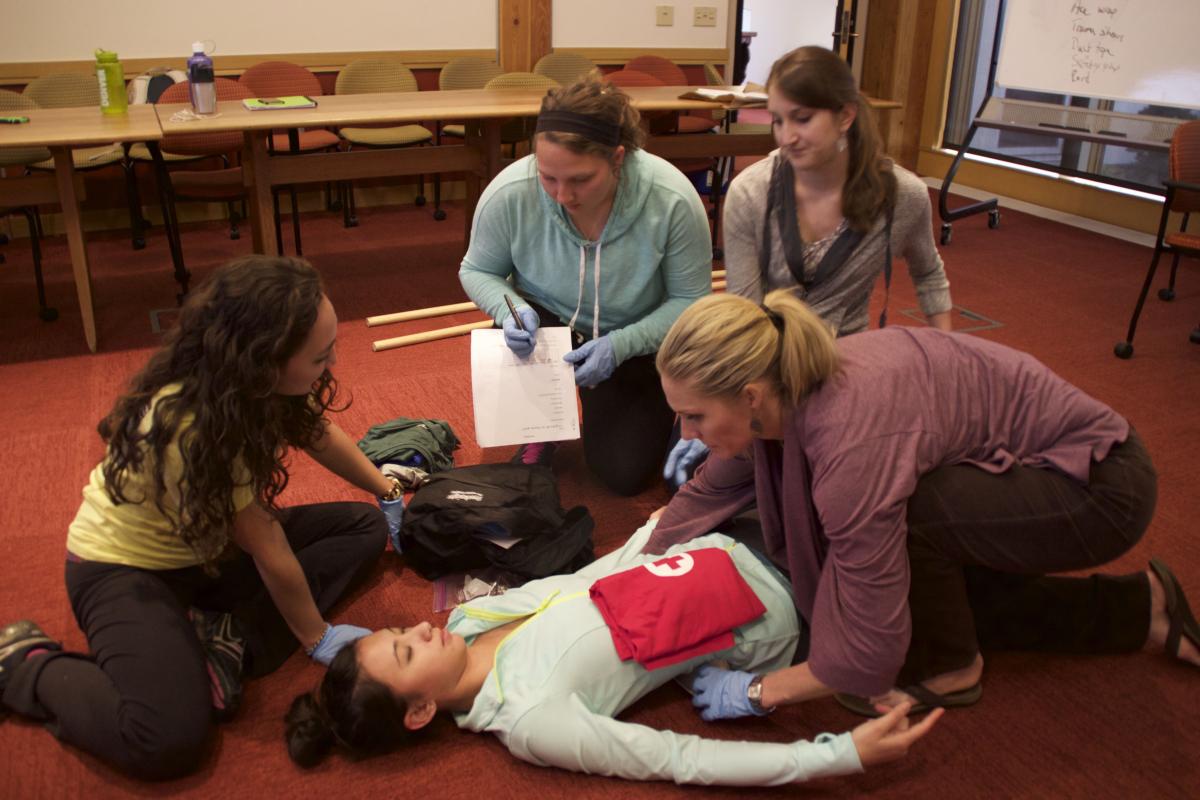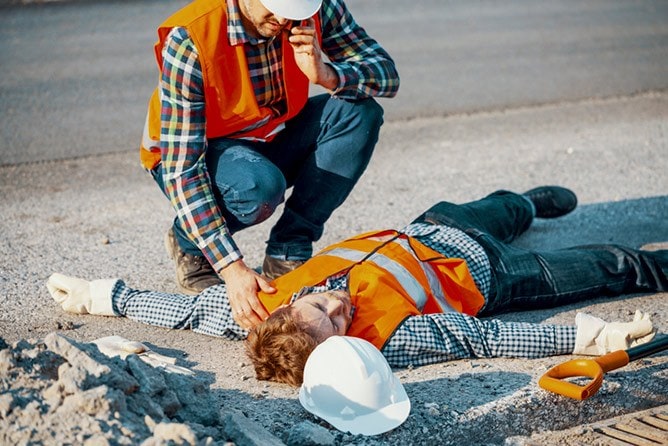How dangerous are Epileptic Seizures?
Seizures are commonplace in society and most people have probably witnessed some kind of a seizure in their lifetime. However, it is important to note that not all seizures are the same and each offers unique challenges when providing First Aid to a patient.
It’s equally important not to overlook the fact that the side-effects of epileptic episodes include fatalities. Medication, however, helps mitigate the situation for many.
What you can do to minimise the risks with epileptic seizures? Read on to learn more about the dangers of epilepsy and how undertaking First Aid Training with us can help.
Related Risks from Epileptic Seizures
There are a number of risks related to epileptic seizures, particularly when they are not controlled by medication and when those seizures are poorly managed.
For example, a tonic-clonic seizure — when the body stiffens before its movements become jerky — could happen while the person is climbing or swimming. This type of seizure is already critical, but here it is compounded by an activity that already involves risks of its own.
Regardless of when an epileptic seizure occurs, medical intervention is crucial to help manage the risks.
First Aid During a Seizure
Tonic-Clonic seizures are the type of seizure most people recognise. They used to be called grand mal seizures. Someone having a tonic-clonic seizure goes stiff, loses consciousness, falls to the floor and begins to jerk or convulse. They may go blue around the mouth due to irregular breathing. Sometimes they may lose control of their bladder or bowels, and bite their tongue or the inside of their mouth.
Here’s how to help if you see someone having a tonic-clonic seizure.
Do:
- Protect them from injury (remove harmful objects from nearby)
- Cushion their head
- Look for an epilepsy identity card or identity jewellery – it may give you information about their seizures and what to do
- Time how long the jerking lasts
- Aid breathing by gently placing them in the recovery position once the jerking has stopped (see picture)
- Stay with the them until they are fully recovered
- Be calmly reassuring

Don’t:
- Don’t restrain their movements
- Don’t put anything in their mouth
- Don’t try to move them unless they are in danger
- Don’t give them anything to eat or drink until they are fully recovered
- Don’t attempt to bring them round
Call for an Ambulance if:
- You know it is their first seizure or
- The jerking continues for more than five minutes or
- They have one tonic-clonic seizure after another without regaining consciousness between seizures or
- They are injured during the seizure or
- You believe they need urgent medical attention
To manage an epileptic seizure and handle other medical emergencies effectively, there is no better alternative than being properly and confidently prepared.
Undertaking a First Aid Course in Belfast with Harberry Training is ideal. Our experienced and professional trainers have years of real-life experience and knowledge that we passionately impart onto our students to ensure they are as prepared as possibly can be to deal with any situation they are faced with.
If you are interested in undertaking a professional First Aid Course in Belfast with us, please contact us here.
Source: www.epilepsy.org.uk


